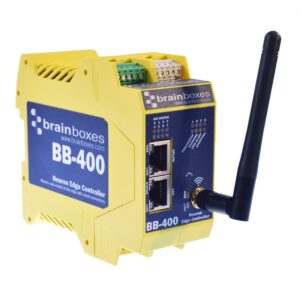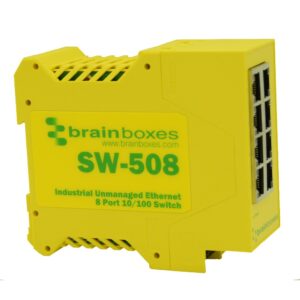The costs associated with industrial heating and the disposal of industrial biomass can be significant; both to businesses and to the environment. Ranheat, a leading provider of biomass energy management equipment, design and manufacture wood waste boilers and warm air heaters that generate heat from the by-products of industrial processes rather than sending the waste to costly landfill sites.
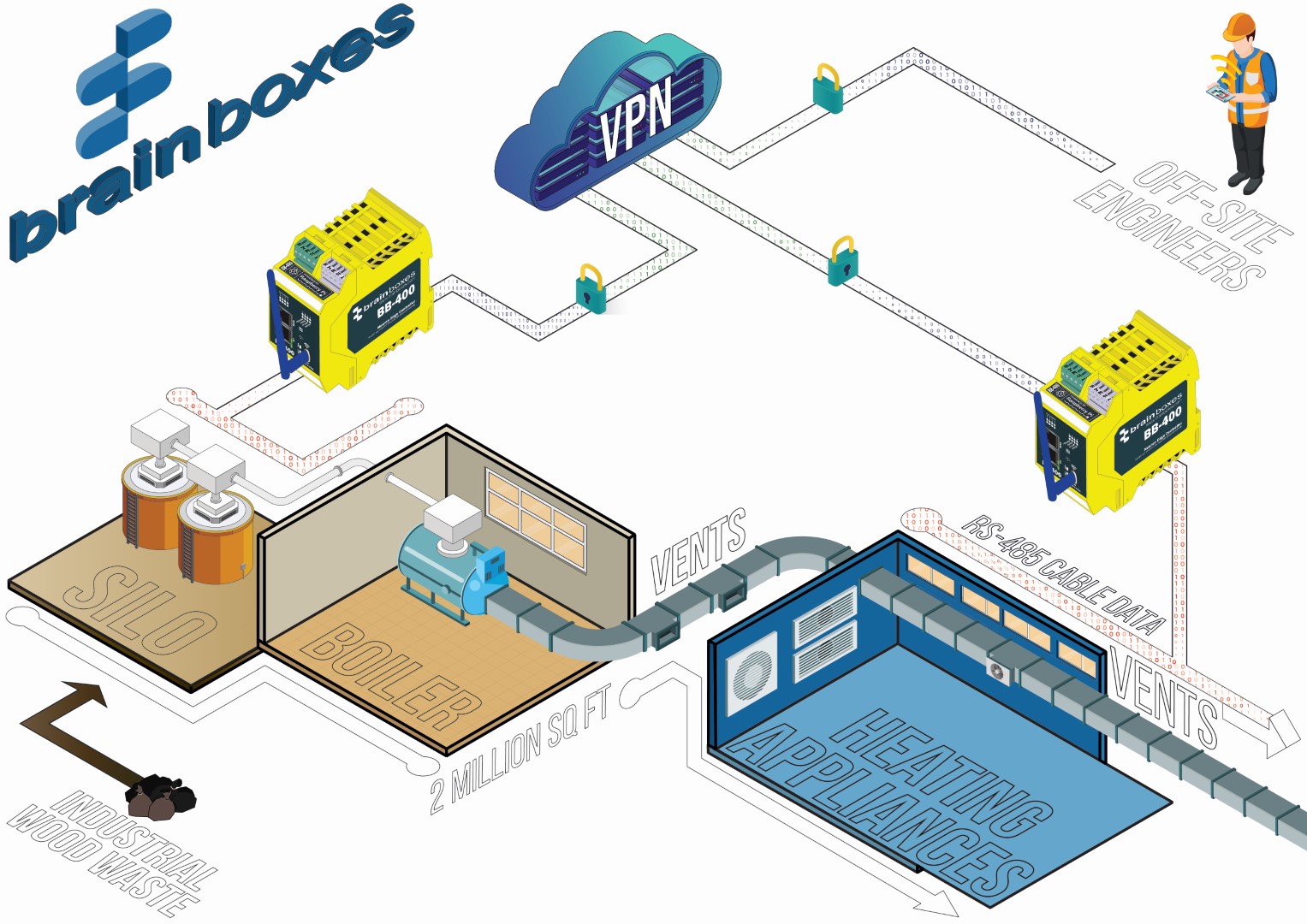
To tackle climate change, and achieve the target of Net-Zero by 2050, it is essential to reduce carbon emissions, lower carbon footprints and seek low-carbon fuel alternatives. Particularly in industry where demands for heat are high; technology that enables the use of cleaner, more sustainable options is becoming increasingly more important. As biomass fuel is considered a low carbon technology (the biological origin of the fuel absorbs as much carbon when growing as it releases when burnt), especially when collected from local sources, industrial biomass heating systems help to lower carbon emissions which can lead to carbon credits and tax relief.
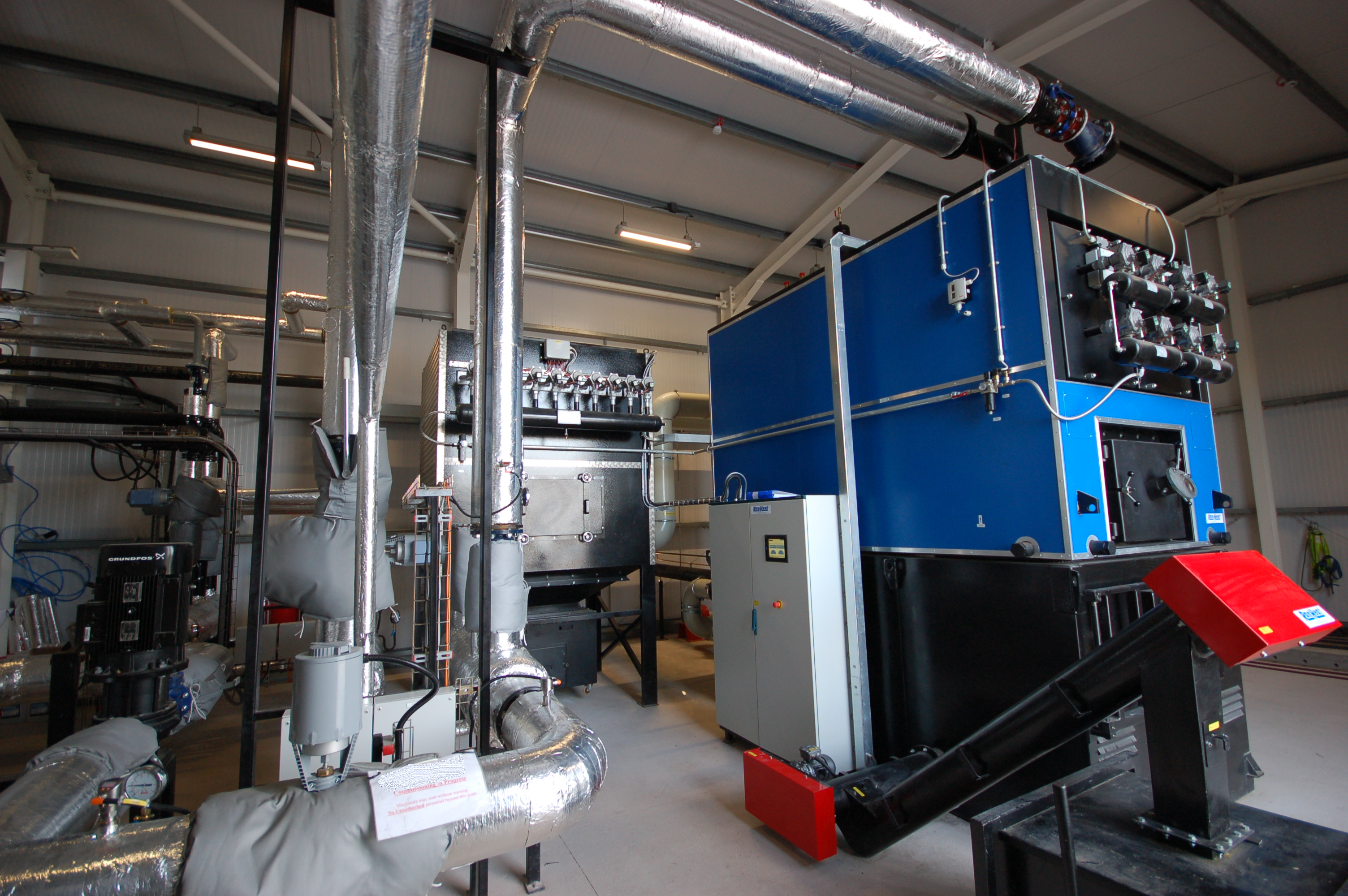
In industrial wood mills, the source of biomass fuel is as local as it comes; made up of the wood chips, shavings and dust discarded as by-products of the factory’s processes. Ranheat have designed and manufactured combustion systems that are able to take in unaudited waste streams; wood waste of different particle sizes is collected from machines and conveyed pneumatically into silos ready to be converted to heat without the need for pre-sorting.
The smart system ensures that heating is increased or reduced to match both demand and the level of fuel available in the silo. PLCs connected to sensors calculate the fuel budget, whilst controlling the heat exchange between the boiler and vents. The vents then transport this heat around the factory to air ducts that open and close to provide the required amount of heat to the various areas. If the fuel level in the industrial wood waste silo becomes limited, the factory’s most critical processes and office spaces are prioritised, whilst an alarm alerts engineers and requests intervention if the system believes it will run out of fuel.
Communication between elements of the system has to travel across vast distances; factories often spanning upwards of 2 million ft2. Factory floor Ethernet can be unreliable; fragmented into different subnets, and requiring onerous security approvals to access and operate. As additional Ethernet segments are limited to 100m cable lengths, creating a VLAN for this scattered system would be complex and costly, instead a simple internet connection is all that is required.
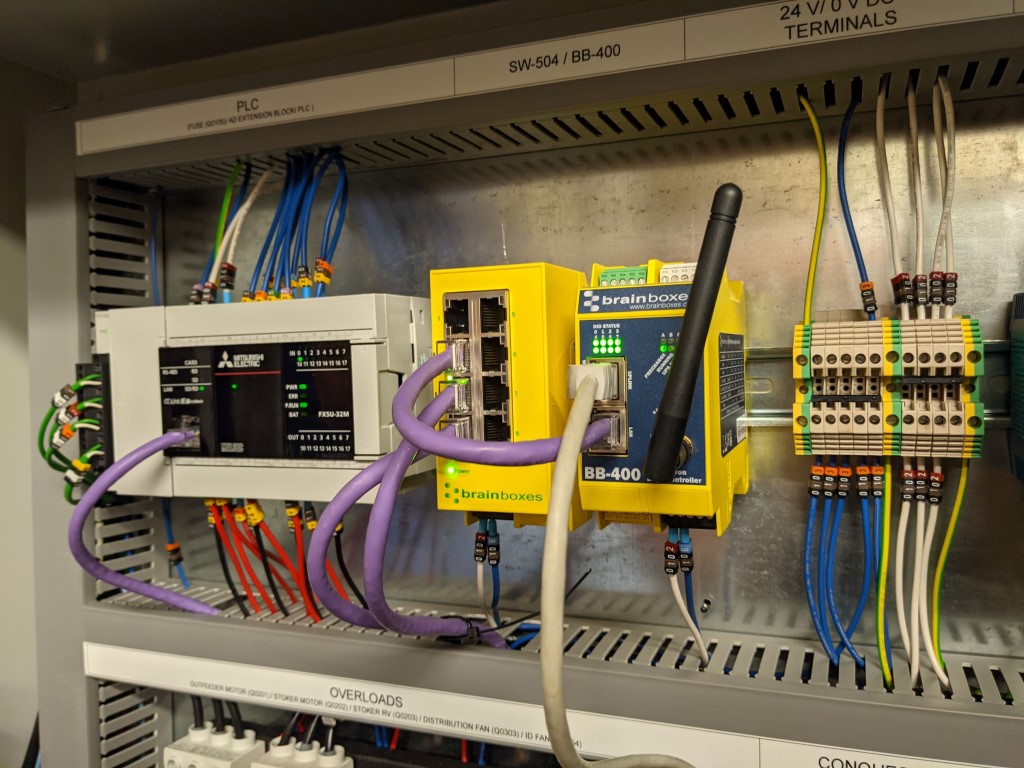 The smart biomass heating system utilises Brainboxes BB-400 Industrial Edge Controllers to circumvent the need to setup expensive, complex networks with each individual company’s I.T department. For the end user it’s important to be able to access their network as quickly and as efficiently as possible; and with a secure VPN client on the BB-400, Ranheat are able to offer a full solution that avoids wasting time fighting infrastructure.
The smart biomass heating system utilises Brainboxes BB-400 Industrial Edge Controllers to circumvent the need to setup expensive, complex networks with each individual company’s I.T department. For the end user it’s important to be able to access their network as quickly and as efficiently as possible; and with a secure VPN client on the BB-400, Ranheat are able to offer a full solution that avoids wasting time fighting infrastructure.
BB-400s repackage unencrypted RS485 cable data from the PLCs at the boiler and silo, and via the cloud, send this information to BB-400s across the factory where it is unpacked and mediated back onto the RS485 cables that control the air ducts and deliver heat to the various heating appliances. As the edge controllers’ VPN connection to the cloud is secure, Ranheat have full engineering access from offices off-site, enabling remote monitoring of the PLCs and HMIs, and allowing engineers to reconfigure processes as necessary. For energy managers, often responsible for the planning, regulation, and monitoring of energy use in multiple facilities, the BB-400’s encrypted connection to the cloud also allows off-site access to the data required to build a unified usage picture.
Brainboxes BB-400 industrial edge controllers allow communication across large networks, enabling the various elements of complex systems to interact over any distance; whether within vast factories or across the world. The encrypted services supported on the BB-400 mean that system installers are able to preconfigure the network through the cloud; gaining secure, remote access, and bypassing the difficulties often associated with networking devices on-site.
-
BB-400
$592.52 Add to cart -
SW-508
$132.15 Add to cart
